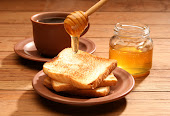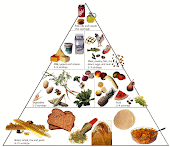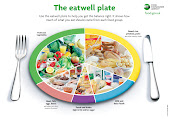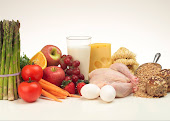Honey is known to possess a variety of antioxidants and antibacterial substances that have been shown to inhibit growth of a wide range of bacteria and fungi. The antimicrobial properties of honey may render it beneficial in the treatment of various oral ailments including periodontal disease and mouth ulcers.
Select honeys demonstrate antimicrobial activity against oral pathogens,
Engeseth NH, Gheldof N, Wang X, Nickelsen JD, Husmillo G, Wu CD. Antioxidant and Antimicrobial Activity of Honeys Against Oral Pathogens Journal of Dental Research. 2002;80:349. abstract- Paper presented at the International Association for Dental Research
The purpose of this study was to characterize the antioxidant content of honey from 10 different floral sources (sage, orange, tupelo, manuka, buckwheat, acacia, fireweed, clover, Hawaiian Christmasberry, and soy) and determine their effects on growth of selected oral pathogens (e.g., Steptococcus mutans, Porphyromonas gingivalis, Actinobacillus actinomycetemcomitans, Fusobacterium nucleatum). Antioxidant capacity of the honeys was determined via the oxygen radical absorbance capacity (ORAC) assay. Specific antioxidant components including phenolics and ascorbate were determined via HPLC analysis. ORAC values ranged from 3 -17 mmol Trolox equivalent/g honey. A linear correlation was observed between total phenolic content and ORAC activity (R2= 0.9352). Antioxidant capacity of the honeys appeared to be due primarily to their phenolic composition as opposed to enzymatic antioxidants and ascorbic acid. Although all 10 honeys were not effective at inhibiting growth of S. mutans, selected components of honeys were active when tested individually (MIC values: 31.225 ?g/ml, abscisic acid; 1 mg/ml, coumaric acid and vanillic acid). Kaempferol was active against both S. mutans and Porphyromonas gingivalis. These results suggest that honeys from different floral sources may exhibit varied antimicrobial activities.
Manuka honey may aid in the treatment of gingivitis
English HK, Pack AR, Molan PC. The effects of manuka honey on plaque and gingivitis: a pilot study. Journal of the International Academy of Periodontology. 2004 Apr;6(2):63-7.
Studies have already shown that manuka honey with a high antibacterial activity is likely to be non-cariogenic. The current pilot study sought to determine if manuka honey with an antibacterial activity rated UMF 15 could be used to reduce dental plaque and clinical levels of gingivitis. A chewable manuka "honey leather" (similar to a stick of chewing gum) was produced for this pilot study. Thirty subjects were randomly provided the manuka honey product or sugarless chewing gum to chew or suck for 10 minutes, three times a day, after each meal. Plaque and gingival bleeding scores were recorded before and after the 21-day trial period. Those receiving the manuka honey product showed significant reductions in mean plaque scores (p=0.001) and the percentage of bleeding sites (p=0.001) while those receiving the chewing gum showed no significant changes in either plaque or gingival bleeding scores. These results suggest that there may be a potential therapeutic role for manuka honey confectionery in the treatment of gingivitis and periodontal disease.
The potential of honey to promote oral wellness
Molan PC The potential of honey to promote oral wellness. General Dentistry. 2001 Nov-2001 Dec 31; 49 (6):584-9
Honey has been used as a medicine since ancient times. Because of it’s antimicrobial properties, honey has the potential to combat oral pathogens and holds promise for the treatment of periodontal disease, mouth ulcers, and other diseases of the oral cavity. This review article describes the general therapeutic features of honey, examines the specific use of honey for oral health, and addresses the concern of potential cariogeneity of honey.











